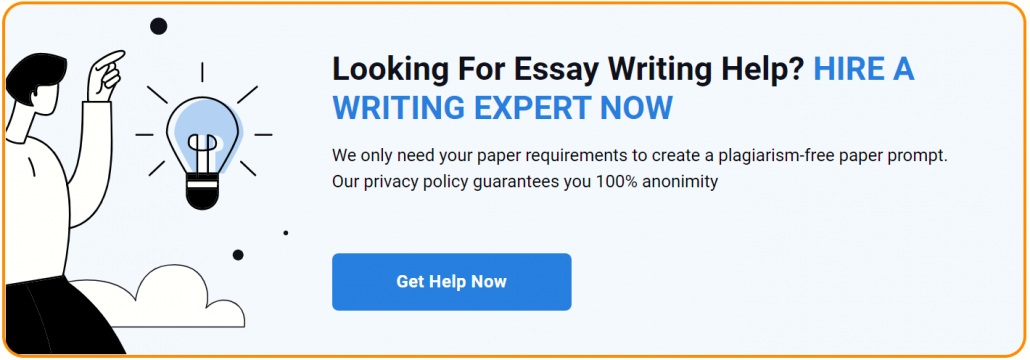HubSpot is a complete software platform for marketing, sales, and customer care to promote business growth. To help businesses expand, it offers a variety of tools and services that help them draw in, keep, and satisfy customers.
HubSpot didn’t achieve the appropriate level of human-like attributes for its objectives. Bots struggled with language intricacy, unlike humans. Thus, some recommended that companies should not disclose that customers were talking with AI but instead let them assume they were chatting with a live human to benefit from human-built relationships. Chatbots can mimic some human behaviors, but they can’t match the complexity and nuance of human interaction. Chatbots are limited by their training and cannot understand human context or emotions. The article highlights, “As technology and artificial intelligence continue to advance, chatbots may become more sophisticated and better able to mimic human conversation. However, it is important to keep in mind that a chatbot is not capable of truly experiencing emotions or understanding the world in the same way a human does.”
Additionally, the article further asserts, “These early days of . . . bots . . . are a cautionary tale. Technology may be good and getting better, but nothing replaces a person. That’s unlikely to change for a while, and maybe ever.” Thus, chatbots are not at the level of a human beings. Research also revealed that 42% wanted a human agent to answer complicated inquiries. 75% didn’t think chatbots could handle complex problems, and 90% thought they should always be able to talk to a human. Facebook estimated that 70% of chatbots failed to meet customer needs. Only 12% of healthcare bot conversations were completed without transferring the customer to a human operator.
HubSpot’s chatbot offers various opportunities for the company, including Improved Customer Experience: Chatbots quickly and efficiently respond to customer inquiries, increasing the customer experience. HubSpot analyzed its content interactions through clickstream analysis and built a customer profile in its CRM system. Increased Efficiency: Chatbots handle routine and repetitive tasks, freeing up customer support teams to focus on more complex issues and educating customers about HubSpot’s offerings and how they might meet their needs; bots provide instant responses to customers’ needs without the stress of waiting in a call queue or having to call during business hours. Chatbots offer 24/7 service to consumers. Increased Engagement: Chatbots engage website and app visitors, reducing bounce rates. Better Data and Insights: Chatbots capture consumer interaction and behavior data, revealing customer needs and preferences. Increase sales. According to the Corporate Executive Board, 57% of the marketing and sales process was typically completed before a prospect had physical contact with a seller.
One of the biggest challenges that HubSpot encountered when creating its chatbot was to develop a bot that could understand and respond to human language naturally and conversationally. Chatbots often rely on pre-developed scripts and commands, but this approach can limit their effectiveness as users expect a conversational interface to understand their intentions and respond accordingly. To overcome this challenge, HubSpot invested in natural language processing technology, fueled by pre-programmed algorithms and machine learning to assist the chatbot in mimicking and comprehending the conversational context and replying more human-likely. Additionally, it provided a robust set of customization tools that allowed businesses to mold the chatbot to their specific needs and create unique conversational experiences for their customers. HubSpot’s efforts to overcome the challenges of chatbot development have been successful, as evidenced by the positive feedback and widespread adoption of their chatbot solution. The company continues to invest in chatbot technology and expand its capabilities, and it is widely recognized as one of the leading providers of chatbot solutions in the market. Overall, HubSpot has demonstrated a solid ability to overcome the challenges of chatbot development. Their chatbot solution is a testament to their expertise and commitment to innovation in this field.
Generally, it is a recommended practice for companies to disclose when communicating with a bot. Customers’ expectations are better set in this way, and confusion or dissatisfaction is reduced. For instance, customers must understand that they are not dealing with a human agent when speaking with a customer care chatbot. This can aid in controlling expectations for response times and the extent of available assistance. Additionally, being transparent with customers about the use of chatbots might assist in increasing their trust. Customers are more inclined to trust a company if it is transparent about how it uses technology and if it is evident when interacting with it.
The HubSpot chatbot case provides several important lessons for using artificial intelligence (AI) in business. To understand and reply to human language naturally, a chatbot must be equipped with natural language processing technologies. With this investment, chatbots may live up to customer expectations and may have more usefulness. Similarly, distinctive and engaging conversational experiences for customers depend on customization capabilities that enable businesses to adapt the chatbot to their individual needs. This guarantees that the chatbot satisfies their particular needs and helps to boost its worth for organizations. Additionally, making the chatbot easy to use and integrate into existing systems can help to streamline the implementation process and make it accessible to a broader range of businesses. This is important for maximizing the potential benefits of the chatbot and increasing its value for businesses. Furthermore, transparency is crucial and Companies must be transparent about when they are interacting with a bot, as this helps to set the right expectations for customers and build trust with customers. Finally, continuous innovation is necessary. HubSpot’s continued investment in chatbot technology and expansion of its capabilities demonstrates the importance of constant innovation in the field of AI.

